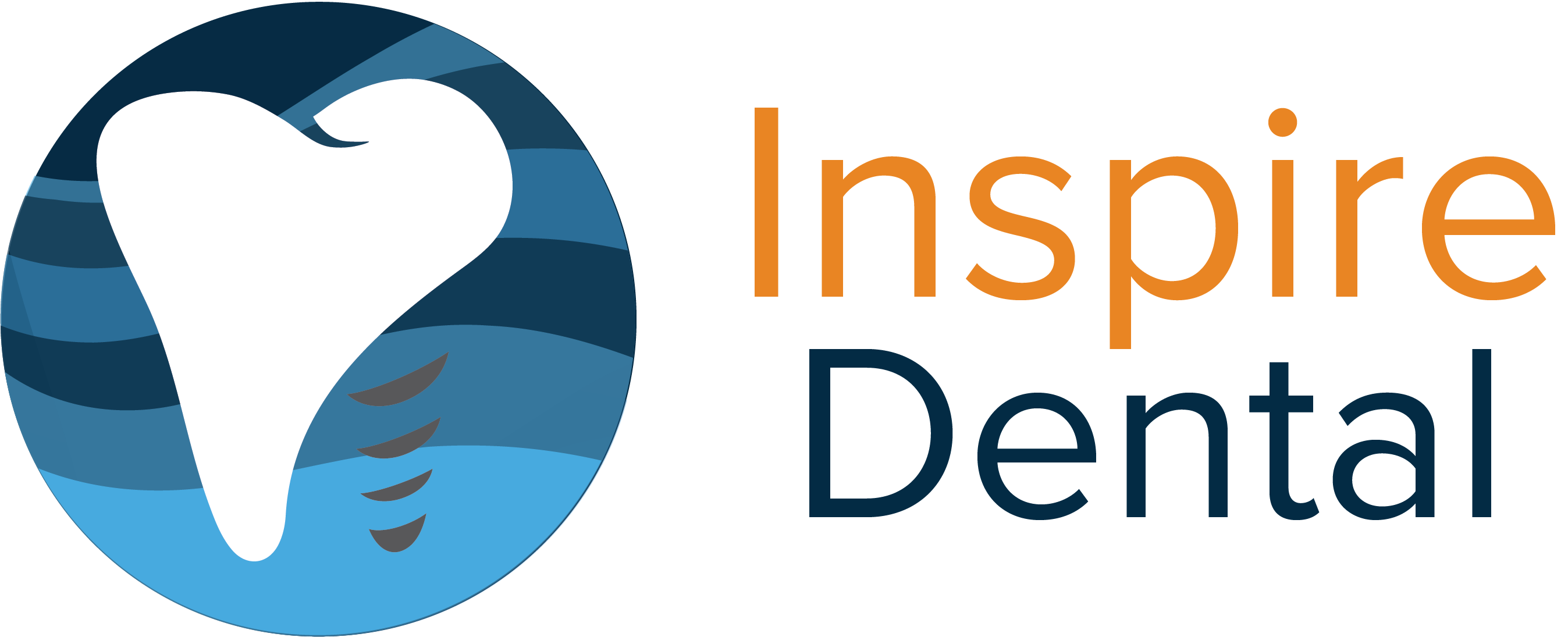Key takeaways:
- Customized meal planning can significantly impact dental health
- Nutrient-rich foods support strong teeth and gums
- Balanced diets reduce the risk of tooth decay and gum disease
- Meal planning helps control sugar intake, a major factor in dental problems
- Proper nutrition through planned meals can enhance overall oral hygiene
Understanding Customized Meal Planning

Customized meal planning is an unexpected but effective tool for improving dental health. By carefully selecting and organizing your daily food intake, you can support the strength of your teeth and gums while reducing the risk of common oral health issues. Let’s explore how tailored meal plans can benefit your smile and overall well-being.
The Dental-Diet Connection
Many people don’t realize how closely linked diet and dental health are. What you eat doesn’t just affect your waistline or energy levels – it has a direct impact on the health of your teeth and gums.
Nutrients That Nourish Your Smile
Your teeth and gums need specific nutrients to stay strong and healthy. A well-planned diet can ensure you’re getting enough of these crucial elements:
- Calcium for strong tooth enamel
- Vitamin D to help absorb calcium
- Vitamin C for healthy gums
- Phosphorus to protect and rebuild tooth enamel
- Vitamin A for healing mouth tissues
By including foods rich in these nutrients in your meal plan, you’re giving your mouth the building blocks it needs to stay healthy.
Reducing Sugar Intake Through Planning

One of the biggest benefits of customized meal planning for dental health is the ability to control sugar intake. Sugar is the primary food source for harmful bacteria in your mouth, leading to tooth decay and cavities.
When you plan your meals, you can:
– Limit sugary snacks and drinks
– Choose low-sugar alternatives
– Balance sugar intake throughout the day
This thoughtful approach to eating can significantly reduce your risk of dental problems.
Creating a Dental-Friendly Meal Plan
Now that we understand the importance of diet in dental health, let’s look at how to create a meal plan that supports your smile.
Start with a Balanced Base
A good dental health meal plan starts with a balanced diet. This means including:
- Lean proteins
- Whole grains
- Plenty of fruits and vegetables
- Healthy fats
- Low-fat dairy or dairy alternatives
These food groups provide a wide range of nutrients that benefit not just your teeth, but your overall health as well.
Incorporate Teeth-Friendly Foods
Some foods are particularly good for dental health. Try to include these in your meal plan:
- Crunchy fruits and vegetables like apples and carrots, which help clean teeth
- Cheese and yogurt, which are high in calcium and can help neutralize acid in the mouth
- Leafy greens, packed with vitamins and minerals
- Nuts, which contain proteins and minerals that strengthen teeth
Plan for Smart Snacking
Snacking can be a major source of tooth decay if not done carefully. Your meal plan should include smart snack choices that won’t harm your teeth:
- Cut vegetables with hummus
- Cheese and whole-grain crackers
- Fresh fruit with nuts
- Plain yogurt with berries
By planning your snacks, you can avoid reaching for sugary or starchy options that stick to your teeth and feed bacteria.
Meal Planning Strategies for Better Dental Health
Creating a meal plan that supports dental health doesn’t have to be complicated. Here are some strategies to make it easier:
Prep Teeth-Friendly Snacks in Advance
Take some time each week to prepare snacks that are good for your teeth. Cut up vegetables, portion out nuts, or make small containers of yogurt with fruit. Having these ready to go makes it easier to make good choices when you’re hungry.
Use a Meal Planning App
There are many apps available that can help you plan meals and track nutrient intake. Look for one that allows you to set goals for specific nutrients important for dental health, like calcium and vitamin C.
Plan for Water Intake
Don’t forget to include water in your meal plan. Drinking water throughout the day helps rinse your mouth of food particles and bacteria, and can help neutralize acids that harm tooth enamel.
Balancing Taste and Dental Health
One concern many people have about meal planning for dental health is that it might be boring or restrictive. However, with some creativity, you can create delicious meals that are also good for your teeth.
Flavorful, Low-Sugar Desserts
Satisfying your sweet tooth doesn’t have to mean harming your teeth. Try these ideas:
- Fresh berries with a dollop of unsweetened whipped cream
- Baked apples sprinkled with cinnamon
- Greek yogurt parfait with nuts and a drizzle of honey
Savory Dishes That Pack a Nutrient Punch
Create main dishes that are both tasty and full of dental-friendly nutrients:
- Salmon with roasted broccoli and quinoa
- Spinach and feta frittata
- Lentil and vegetable soup with whole-grain bread
Meal Planning for Special Dental Situations
Sometimes, dental health concerns require specific dietary considerations. Here’s how meal planning can help in these situations:
Post-Dental Surgery Meal Plans
After dental surgery, you may need to eat soft foods for a while. A meal plan can help ensure you’re still getting proper nutrition:
- Smoothies made with Greek yogurt and soft fruits
- Mashed sweet potatoes with butter
- Scrambled eggs with avocado
Braces-Friendly Meal Plans
If you have braces, certain foods can damage your orthodontic work. Plan meals that are safe to eat:
- Soft-cooked vegetables
- Tender meats cut into small pieces
- Smoothies and soups
Dry Mouth Management Through Diet
For those with dry mouth, certain foods can help stimulate saliva production:
- Sugar-free gum or candies
- Tart fruits like lemons or limes (in moderation)
- Foods that require lots of chewing, like carrots or apples
The Role of Timing in Dental Health Meal Planning
When you eat can be just as important as what you eat when it comes to dental health. Consider these timing factors in your meal plan:
Spacing Out Acidic Foods
Acidic foods and drinks can weaken tooth enamel. Plan to consume these items with meals rather than as standalone snacks to minimize their impact on your teeth.
Allow Time Between Eating and Brushing
It’s best to wait at least 30 minutes after eating before brushing your teeth, especially after consuming acidic foods. Factor this into your daily schedule when meal planning.
Plan for Regular Meals
Grazing throughout the day can increase the risk of tooth decay. Plan for regular, balanced meals with limited snacking to give your mouth a chance to neutralize acids between eating sessions.
Customizing Your Meal Plan for Long-Term Dental Health
Remember, a meal plan that supports dental health isn’t a short-term fix – it’s a long-term strategy for maintaining a healthy smile.
Gradual Changes for Lasting Results
If you’re new to meal planning or making significant changes to your diet, start slowly. Implement changes gradually to make them more sustainable.
Regular Check-Ins with Your Dentist

As you implement your dental health meal plan, keep your dentist informed. They can provide feedback and adjust recommendations based on your specific dental needs.
Adjusting Your Plan as Needed
Your nutritional needs may change over time, and so should your meal plan. Be prepared to make adjustments based on changes in your dental health, lifestyle, or preferences.
Customized Meal Planning Tools for Dental Health
To make dental health meal planning easier, consider using these tools:
Nutrient Tracking Apps
Use apps that allow you to track specific nutrients important for dental health. This can help ensure you’re meeting your daily requirements for calcium, vitamin D, and other key nutrients.
Customized Meal Planning Templates
Create or download meal planning templates that include spaces for snacks and water intake. This can help you stay organized and ensure you’re including all the elements of a dental-friendly diet.
Recipe Databases
Look for recipe databases that allow you to search by ingredient or nutrient. This can help you find new, exciting recipes that fit into your dental health meal plan.
The Bigger Picture: Oral Health and Overall Wellness
While we’ve focused on how meal planning can benefit dental health, it’s important to remember that oral health is closely linked to overall wellness.
The Mouth-Body Connection
Poor oral health has been linked to various systemic health issues, including heart disease and diabetes. By planning meals that support dental health, you’re also supporting your overall health.
Mental Health Benefits
The act of meal planning itself can have positive effects on mental health. It can reduce stress around food choices and provide a sense of control and accomplishment.
Overcoming Challenges in Dental Health Meal Planning
Like any new habit, customized meal planning for dental health can come with challenges. Here are some common obstacles and how to overcome them:
Time Constraints
If you’re short on time, try batch cooking on weekends or using a slow cooker for easy, dental-friendly meals during the week.
Budget Concerns
Eating for dental health doesn’t have to be expensive. Focus on affordable, nutrient-dense foods like eggs, beans, and seasonal produce.
Picky Eaters
Customized meal planning for a family with picky eaters, involves them in the process. Let them choose between healthy options to increase buy-in.
The Future of Dental Health and Nutrition
As our understanding of the link between diet and dental health grows, we can expect to see more personalized approaches to nutrition for oral health.
Emerging Research
Keep an eye out for new research on how specific foods and nutrients affect dental health. This can help you refine your meal plan over time.
Technological Advances
In the future, we may see more advanced tools for tracking the impact of diet on dental health, such as apps that integrate with dental records.
Conclusion:
Customized meal planning is a powerful tool for improving and maintaining dental health. By thoughtfully selecting foods, controlling sugar intake, and ensuring a balance of necessary nutrients, you can support strong teeth and healthy gums.
Remember, the journey to better dental health through nutrition is a marathon, not a sprint. Start with small changes, be consistent, and don’t hesitate to seek guidance from dental professionals. You can visit our website or contact us. With time and dedication, your carefully planned meals can contribute to a brighter, healthier smile and improved overall well-being.
| Nutrient | Function for Dental Health | Food Sources |
|---|---|---|
| Calcium | Strengthens tooth enamel | Dairy products, leafy greens, fortified plant milks |
| Vitamin D | Helps absorb calcium | Fatty fish, egg yolks, fortified foods |
| Vitamin C | Supports gum health | Citrus fruits, berries, bell peppers |
| Phosphorus | Protects and rebuilds enamel | Meat, fish, eggs, dairy |
| Vitamin A | Promotes mouth tissue healing | Sweet potatoes, carrots, spinach |
| Meal Type | Dental-Friendly Options | Benefits for Oral Health |
|---|---|---|
| Breakfast | Greek yogurt with berries and nuts | High in calcium, low in sugar, promotes saliva production |
| Lunch | Spinach salad with grilled chicken and avocado | Rich in vitamins and minerals, low-acid |
| Dinner | Baked salmon with roasted vegetables | High in omega-3s and vitamins, requires chewing |
| Snack | Apple slices with almond butter | Cleans teeth, provides protein and healthy fats |
